Fewer and fewer men are looking to get married. These days the Pew Research Institute recently found that the number of men ages 18 to 34 saying. A successful marriage is one of the most important things that dropped from 35 percent to 29 percent since 1997.
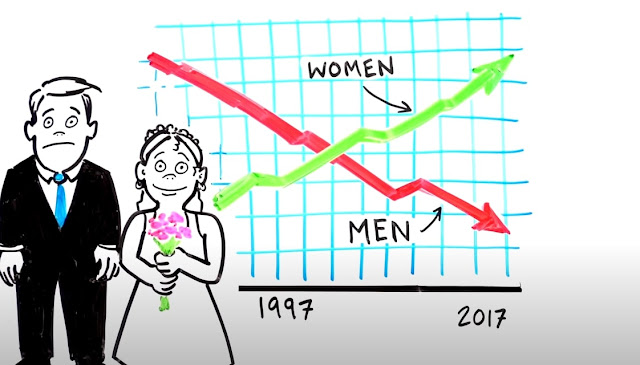
The number of young adult women saying the same thing has risen from 28 percent to 37 percent in the same time. This statistic made me wonder why so many guys out there are saying. They don't want to get married. There seems to be a growing subculture of guys. Who says they'd rather avoid it altogether? I grew up thinking that marriage is just what you do when you hit a certain age now.
Happy married life
I'm questioning why we get married, where the tradition came from, and the pros and cons. This article will aim to answer these questions and see how marriage fits into modern-day culture. But first, let's take a quick look at the history of matrimony.
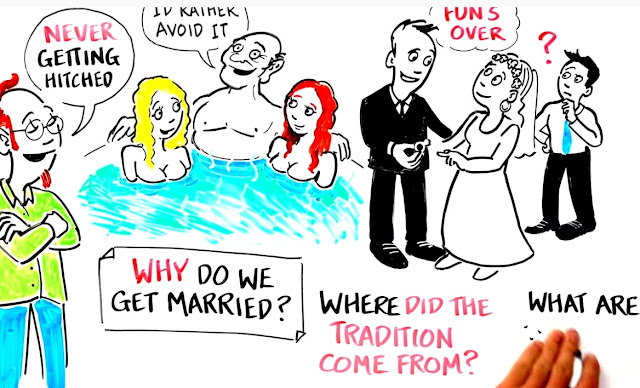
The first humans who lived about 5 million years ago had very little use for marriage using the behavior of bonobos is the basis for how early humans would have behaved. It is presumed that early males and females had sex with many partners. They lived in open, polyamorous communities were for sexual favors.
Couples therapy
Because females could collect food, fruits, nuts, and insects while still caring for and protecting their baby's males were not needed as protectors or providers. It meant that neither partner gained from being in a committed pair as the climate heated up, the forests receded, and humans ventured out into the savanna.
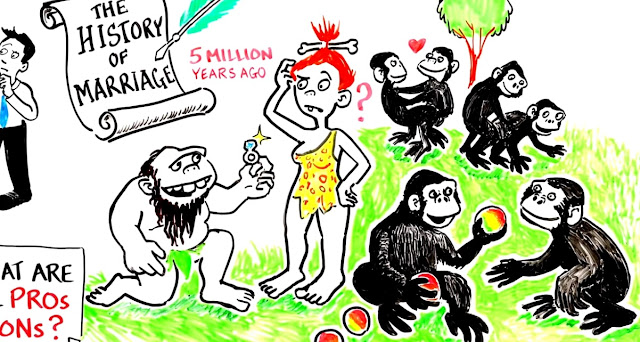
We began walking upright, hunting with tools, and our brains got bigger our large brain sizes—the reason human babies are born so helplessly early and require constant care from their mothers. During the 1.8 million to 23,000 years ago, survival was hard, and the offspring had the best chance to reach adulthood.
Divorce
Those that had two parents that work together to raise and protect. This survival strategy gave birth to first marriages. These were not quite like the wedding as we imagine couples today. In this period would stay together for about three or four years. Before one or the other would wander off to start another family.
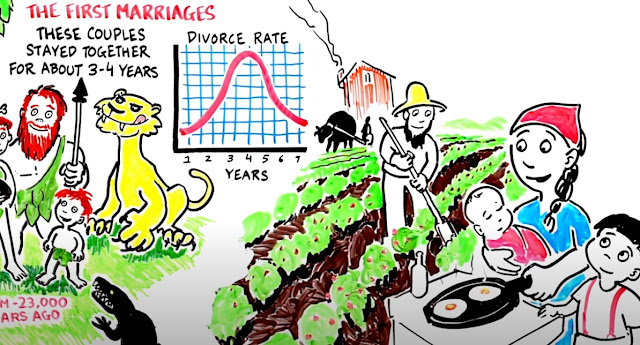
Perhaps this is why divorce rates peak between three to four years and modern-day marriages relationship dynamics completely changed. When humans began to grow their food, agriculture meant that humans were permanently tied to the land. The most productive household arrangements were ones in which men and women divided their tasks. Physically stronger men worked the land while women stayed closer to home and cared for children.
Love marriage
It is the era in which marriage became a lifelong union between two people recognized by their community. Agriculture tied people to their land, meaning that at the end of the four years. Neither men nor women had any inclination to wander off and find a new family. So, they stayed together and worked as a unit to feed and care for their children.
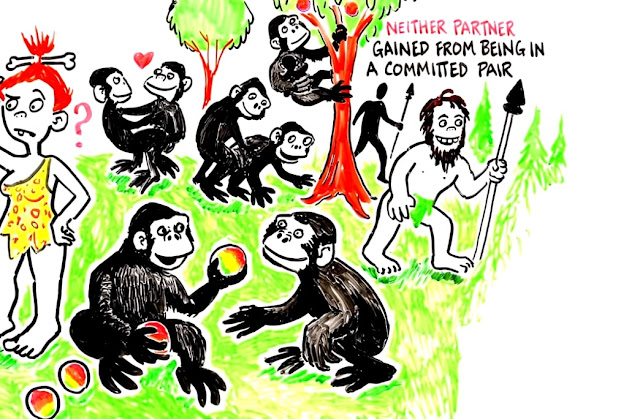
The creation of marriage is a legal contract between men and women that came into being over time. As communities settled and monogamous relationships became a necessity for long product life. So, the real origin of marriage came from the natural desire of both men and women to see their children survive.
Marriage
In the last few thousand years, the dominant evolutionary strategy of marriage became less about a survival strategy and more about a way to control power. It became a tool to strengthen alliances, maintain wealth, solidify social class, contain female sexuality and fulfill religious duties.
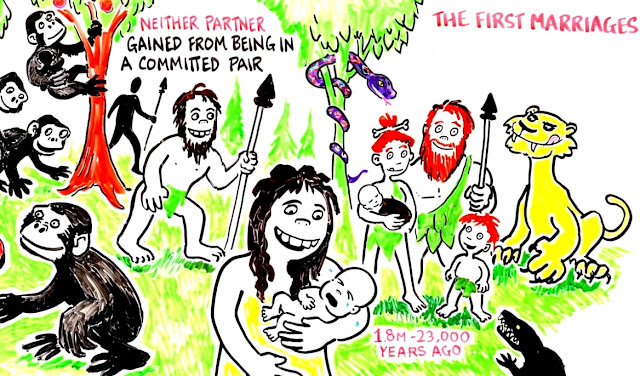
Arranged marriages were the norm around much of the world up until the mid-20th century. So now, most of us are watching this life in a society filled with abundance. We're at the top of the food chain, and we don't have to defend ourselves from saber-toothed Tigers. Anymore many of us are not strictly religious or rural farmers. Our parents aren't arranging for us.
New marriage
We don't need to form an alliance between kingdoms like in Game of Thrones. So, you may be wondering why we are still getting married. We no longer need the institution of marriage to ensure our species' survival; life doesn't have to be a conveyor belt of common events. You graduate at this age, start a family at that age, and retire at this age.

These are ideas that many Millennials are discovering and are a primary cause of the steady decline in new marriages. Each year about 5% it's beginning to be seen by many as an outdated restricting institution that is not worth it. People keep getting married at older ages in the 1960s.
Best age to get married
Over half of Americans under 30 were married. The average age of marriage for a woman was about 20. The average age for men was 23. Today only 20 percent of people under 30 are married, and the average age for women is 26 and a half and for men is nearly 29.
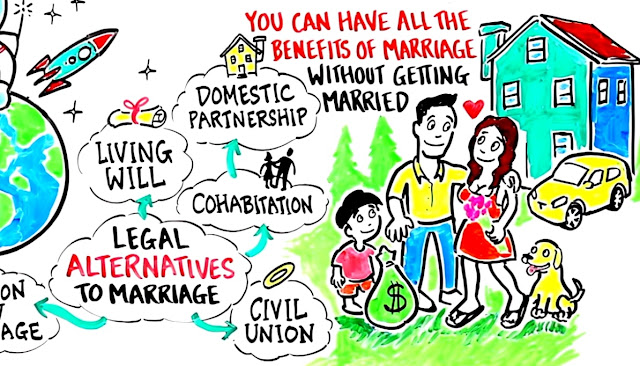
So, let's take a look at some of the pros and cons of modern-day marriage. First, the pros of marriage are the ultimate showcase of commitment, an unbreakable love bond through sickness and health. But there are numerous legal, financial, social, and health advantages to getting hitched.
Marriage benefits
The legal benefits of a married couple are seen as a single taxable unit in the government's eyes.
In most cases, this will save money on taxes when you claim your spouse is dependent. There are estate planning benefits, including inheritance rights government benefits in receiving Social Security Medicare.
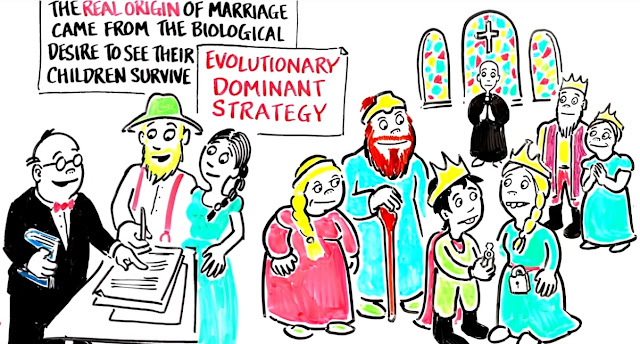
Disability benefits for your spouse employment benefits such as obtaining health insurance through your spouse's employer. The right to take medical leave to care for a spouse who becomes ill decision-making benefits, including the right to make medical decisions. If your spouse is incapacitated, consumer benefits such as family rates for health homeowners auto. Other types of insurance
financial benefits
Financial benefits a 2005 study at Ohio State University found that people saw a sharp increase in the level of wealth after getting married. After ten years of marriage, the couples reported an average net worth of around forty-three thousand dollars for single people.
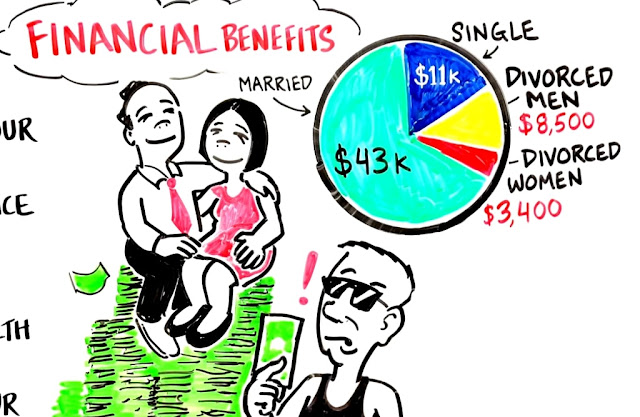
At the same age had a net worth of only eleven thousand dollars. However, people who got divorced were worse off than any other group. After a divorce, the average man was left with $8,500 in assets. While the average divorced woman had only $3,400
Health benefits
There are also many perceived social benefits married people appear to be more stable, committed, and reliable having a long-standing marriage shows. The world that at least someone can tolerate you in the history of America. There have only been two unmarried presidents. The last one was Grover Cleveland in 1886, and he got married shortly into his first term. So, a successful marriage can certainly lead to a happy, healthy long life.
Divorce reson
They're fun, and we all like cake, but the average wedding costs about $30,000. Over a third of married couples go into debt to pay off the big day. Half of those newlyweds are still paying the tab five years later, and chances are by the time..
You're finished paying off your wedding. There will be time to start paying for your divorce, roughly half of all marriages in the US and divorce. It is another big reason Millennials don't see the value in marriage anymore. Why start something if it's probably going to fail? Much of the millennial generation grew up with single or divorced parents. Their entire youth was back and forth between bickering parents overhearing never-ending conversations of legal disputes and custody battles. Another huge factor contributing to men's disinterest in marriage is the fact that marriage isn't.
Late marriage
What it used to be a hundred years ago, having a wife meant having someone who would raise your kids, clean your house, and cook your meals. It may not be an ideal dynamic for everyone. But men used to have much to gain from getting married.
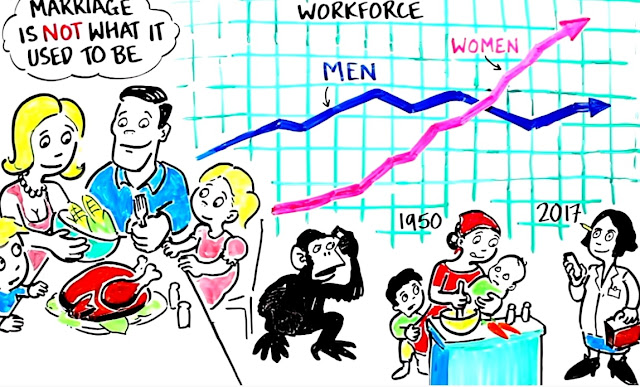
There are more women than men in the workforce, and more women than men have college degrees. The bonobo's many women today no longer need a man to provide for them. There seems to be a direct correlation between the liberation of women. The decline in men seeking marriage in areas where women are highly educated and career-oriented.
Stable marriage
The marriage rates are the lowest, although marriage rates continue to decline, both men and women agree. That parenting is still a high priority 52% of Millennials say that being a good parent is one of the most important things in life. At the same time, only 29% assign high importance to get married. It shows that Millennials don't think that they necessarily need to be married to have a family.
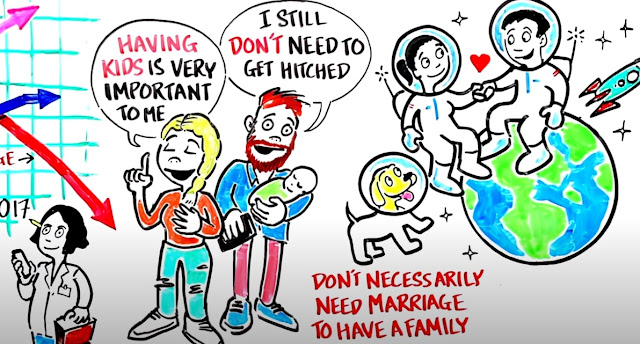
Many are choosing to avoid the headache and create a love bond and raise kids on their terms. There are many legal alternatives to getting married, like a domestic partnership civil union or making a will. The truth is you can have just about all the benefits of marriage without actually getting married. You can have a lifelong partner who supports your goals, and you can have a soulmate; you can have a family, a shared home, financial wealth, and good health without a state-mandated license. So maybe those bonobos had it right..

All along, do your research to assess your own goals and list your priorities. Suppose your goal is to travel the world and check out the tinder scene in every city. Maybe marriage isn't right for you. That does not pressure you.
 Reviewed by apk pro
on
July 14, 2020
Rating:
Reviewed by apk pro
on
July 14, 2020
Rating:

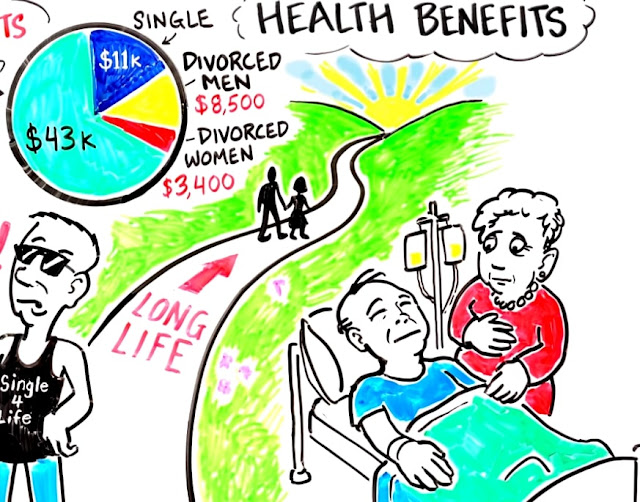



No comments: